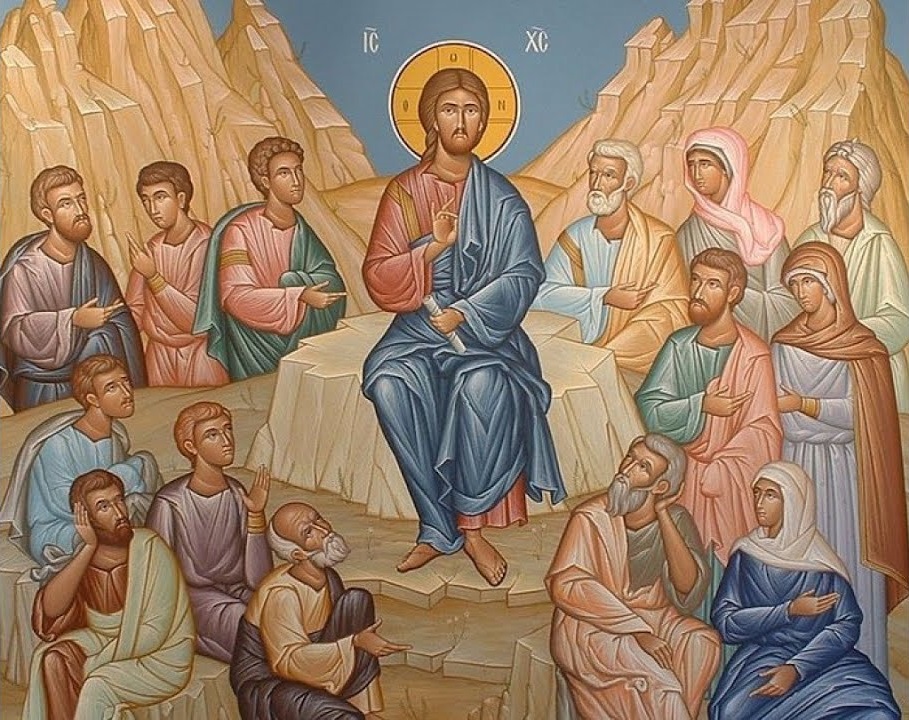In the name of the Father, and of the Son, and of the Holy Spirit, One God, Amen.
“What David said of old,” writes St Theophylact of Ochrid,
speaking prophetically in the person of Christ, has now come to pass: I will open My mouth in parables. [Ps. 77:2] The Lord speaks in parables for many reasons: to make His listeners more attentive and to stir up their minds to seek the meaning of what is said. For we are apt to be curious about sayings that are obscure in meaning and to disregard sayings that are clear. He also speaks in parables so that those who are unworthy may not understand what is said concerning spiritual mysteries.

We hear the parable and we think we understand, yet the Lord speaks so often of those who have “ears to hear” we forget that we may not be hearing correctly. It is easy in today’s reading, dear brothers and sisters, to think we are passive in the preaching of the Gospel. The Sower is Christ and he goes out into all the world casting out his seed. Christ, we know, is not a mere messenger of God—saying “thus says the Lord” like the prophets of old—but is God who speaks to us directly.
Yes, on first reading this Gospel places all the work on God and none on us. The Lord sows, I am merely ground on which the seed may fall. But this is not the meaning—we cannot say the Gospel is for those who are “good ground” but will wither elsewhere—because if the ground has rocks or thorns, if the ground has become so dried up it has become as a walkway, then it is the fault of the ploughmen. We, you and I, are called to remove the rocks and thorns from our hearts so that the Gospel may take root. We, you and I, are called to plough the land that the Word of God may be cultivated. We, you and I, are not passive in this parable but immanently active.
My dear brothers and sisters, we are called to purge from our hearts all which may stifle the growth of the Gospel within us. And further, to help remove those same stumbling blocks in our society. We are called to reflect a loving God to those around us so they may come to know the love of God and let the Gospel grow in their hearts even a hundredfold. Let today be the day when we renew our commitment to plough our hearts so we are fertile ground—not hardened earth, rocks nor thorns—and be found worthy to receive the graces of God to be implanted.
That we may come to knowledge of the one God and Father, through his beloved Son by the power and operation of the Holy Spirit, Amen.
Titus, my son, the saying is sure. I desire you to insist on these things, so that those who have believed in God may be careful to apply themselves to good deeds; these are excellent and profitable to men. But avoid stupid controversies, genealogies, dissensions, and quarrels over the law, for they are unprofitable and futile. As for a man who is factious, after admonishing him once or twice, have nothing more to do with him, knowing that such a person is perverted and sinful; he is self-condemned. When I send Artemas or Tychicos to you, do your best to come to me at Nicopolis, for I have decided to spend the winter there. Do your best to speed Zenas the lawyer and Apollos on their way; see that they lack nothing. And let our people learn to apply themselves to good deeds, so as to help cases of urgent need, and not to be unfruitful. All who are with me send greeting to you. Greet those who love us in the faith. Grace be with you all. Amen.
—Titus 3:8–15
The Lord said this parable: “A sower went out to sow his seed; and as he sowed, some fell along the path, and was trodden under foot, and the birds of the air devoured it. And some fell on the rock; and as it grew up, it withered away, because it had no moisture. And some fell among thorns; and the thorns grew with it and choked it. And some fell into good soil and grew, and yielded a hundredfold.” And when his disciples asked him what this parable meant, he said, “To you it has been given to know the secrets of the kingdom of God; but for others they are in parables, so that seeing they may not see, and hearing they may not understand. Now the parable is this: The seed is the word of God. The ones along the path are those who have heard; then the devil comes and takes away the word from their hearts, that they may not believe and be saved. And the ones on the rock are those who, when they hear the word, receive it with joy; but these have no root, they believe for a while and in time of temptation fall away. And as for what fell among the thorns, they are those who hear, but as they go on their way they are choked by the cares and riches and pleasures of life, and their fruit does not mature. And as for that in the good soil, they are those who, hearing the word, hold it fast in an honest and good heart, and bring forth fruit with patience.” As he said these things, he cried out “He who has ears to hear, let him hear.
— Luke 8:5–15
